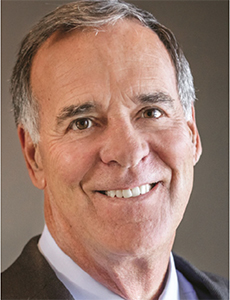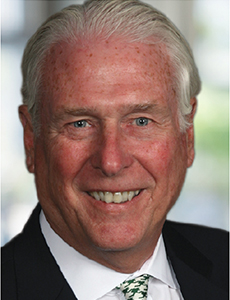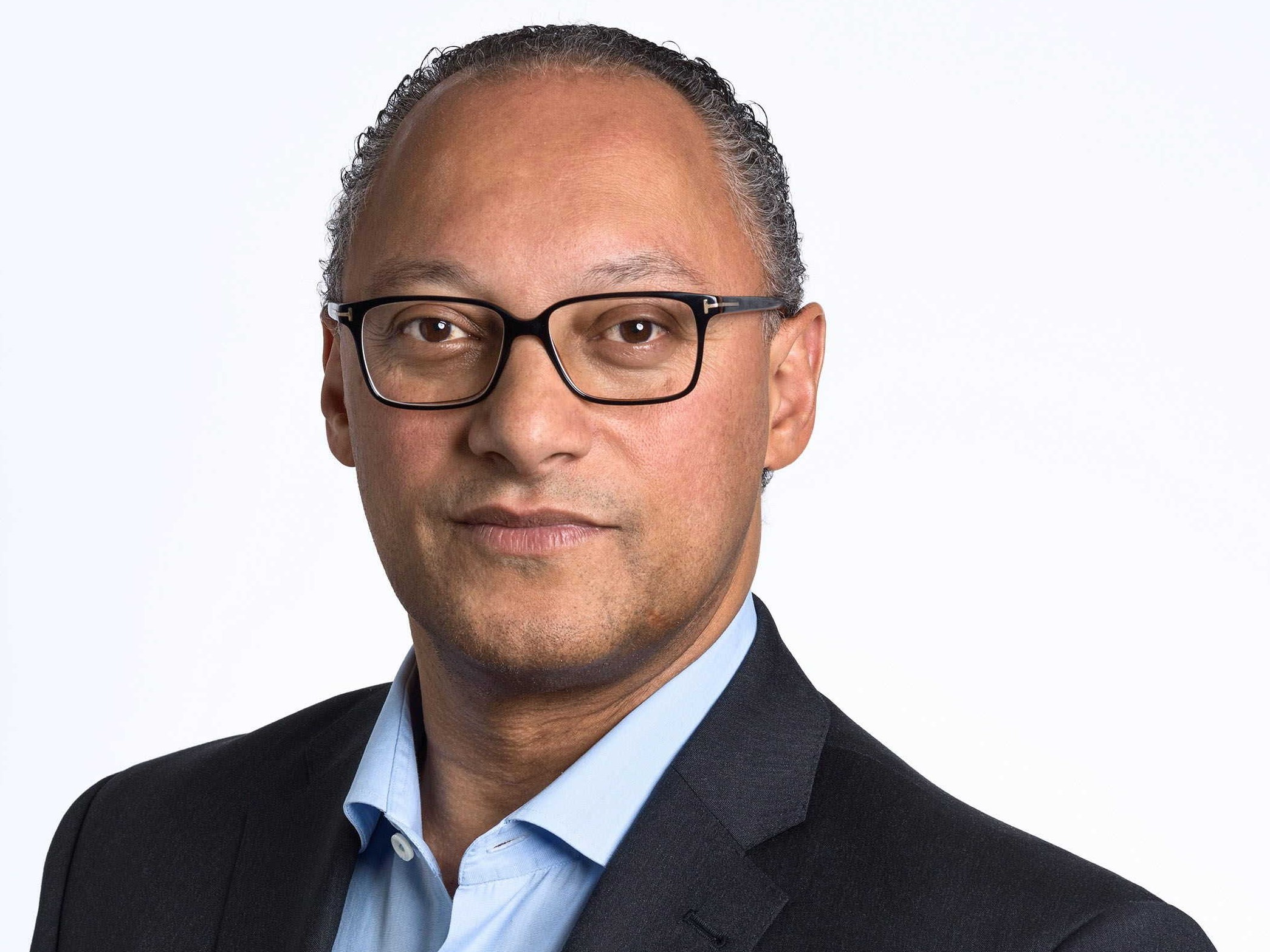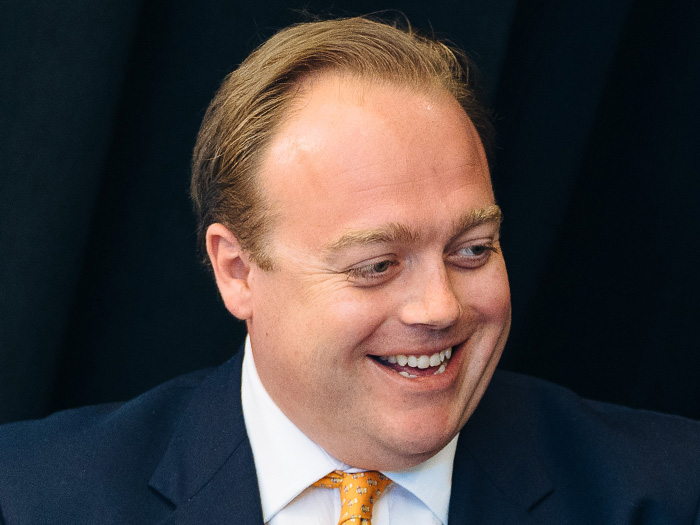Brokerage
Family Pride
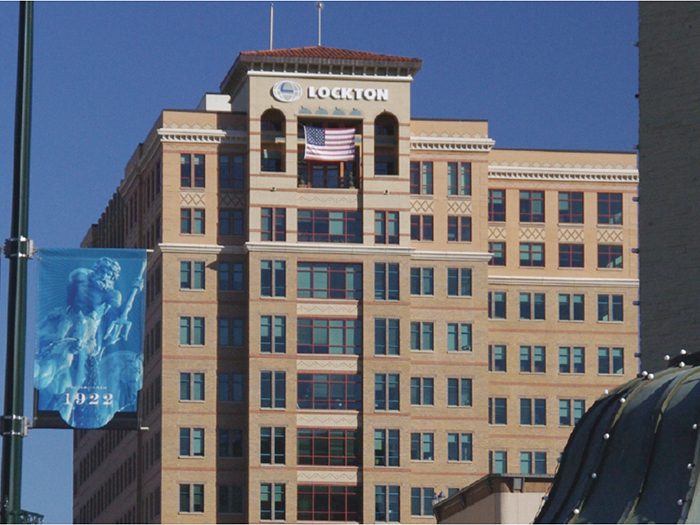
From its start using a single answering machine in 1966, Lockton celebrates its 50th anniversary this year as a global brokerage. From that humble beginning it now boasts $1.34 billion in annual revenue and 6,000 associates worldwide.
The founder, Jack Lockton, who died in 2004, was an intense, energetic man in a hurry. One former colleague recalled he must have gotten thousands of parking tickets as he rushed to appointments.
Lockton was the type of man who would happily answer the phone at 4 a.m. to advise a client. And he grew his business one client at a time.
“If he was awake, he was working,” said former COO Mike Frost, in a videotaped retrospective.
That same dedication to customer service remains a cornerstone of the Lockton culture today, said David Lockton, chairman of the Kansas City, Mo.-based company. He was the ninth associate at the firm, having been hired by his brother Jack in 1976 over a barbecue chicken dinner.
“It’s a culture that spreads like wildfire because it feels right to people,” said Lockton.
“But where it started was with our founder, my brother Jack who struck out on his own with no resources and no ability to hire anyone,” Lockton said.
With just that one answering machine, Jack Lockton was up against it in trying to pull business in the construction industry away from larger, more established brokerages. Having worked so hard to gain a client, he hated to lose one.
“When he was successful at finding a combination that would allow him to acquire these clients, the last thing he ever wanted to do was ever lose them. When I came in the business a few years later, there was this huge focus on making sure that we never lose a client,” Lockton said.
“It was a really, really big crisis if we lost a client. It still is today.”
That focus is demonstrated by Lockton’s client retention rate, which is 96 percent, compared to an industry average of 85 percent, according to the company.
But when Jack died in 2004 — about five years after he was diagnosed with pancreatic cancer and given 90 days to live — it was a scary time.
A Key Transition
David took the reins of the family-owned company and not only kept the brokerage together, he positioned it for far greater growth.
“Dave was ready to go and hit the ground running as our chairman,” said Steve Lockton, Jack’s son and a Lockton producer, in a video retrospective.
“He was never, ever going to let any of us down, let Jack down, and he really rose to the occasion.”
High-energy, client-focused and detail-oriented, David Lockton added a workers’ compensation claims cost control solution to the company’s services in 1989 before he took control of the company.
Once in charge, he made a major strategic move for the future by taking the company global with the acquisition of London-based Alexander Forbes International Risk Services in 2006.
While the brokerage had grown by bringing in specialized lines of business before — recruiting cousin Bill Frick in 1980 with his clients in manufacturing and real estate; Sam Reda with employee benefits in 1987; and Bob Croy in 2000 with retirement — this was a major acquisition.
It made Lockton the largest independent, privately owned global insurance broker. It was not smooth sailing at the beginning.
“The biggest challenge with that acquisition, and most acquisitions, is culture,” said Lockton.
“It took several years for us to instill the culture that drives our success and then it took off once that was accomplished.”
“When you win … that is infectious. It puts smiles on faces. It puts people after work together for dinners and socializing with their friends in the company.” — John Lumelleau, president and CEO, Lockton
“It was a company,” President and CEO John Lumelleau said, “that needed an awful lot of attention and leadership talent to take advantage of the assets within that company that we acquired to maximize them and to build out new competencies.”
Glenn Spencer, COO and president of U.S. operations, will take over as president and CEO on May 1 upon Lumelleau’s retirement. Spencer said the company’s culture is “all about being the best place for our clients and the best place for associates to build their careers and focusing on our communities.”
“If you heard our people talk all around the world, they’ll mention those three things,” he said, noting that in the last fiscal year, Lockton’s international company “grew more than our company in the United States for the first time ever. That was a really momentous point in time for us and their client retention and associate retention are every bit as good as they are in the U.S.”
One of the reasons Lockton retains 95 percent of its client-facing associates, Lumelleau said, is because it’s fun to be on a successful team, whether it’s bringing in new accounts, winning tough renewals or building new relationships.
“When you win … that is infectious,” he said. “It puts smiles on faces. It puts people after work together for dinners and socializing with their friends in the company.”
“Our voluntary turnover,” said Lockton, “is near zero. We work hard and we play hard.”
The company’s employees in 80-plus offices around the world have a great deal of autonomy in the “rather flat” organization, Spencer said.
Knowledge Transfer
As in the insurance industry as a whole, retaining productive associates while recruiting new talent are key imperatives.
Lockton accommodates its older professionals as they change roles or responsibilities on the way to retirement to retain them as vital parts of the organization and allow them to pass on the knowledge they have accumulated, Spencer said.
Recruiting new talent is also crucial. The company hired 1,000 new associates last year globally.
“Whether we are recruiting on campuses or recruiting top talent from our competitors,” Spencer said, “there is a real sense of focus from our most senior people. … We invest a ton in professional development. We are looking at how we can restructure our benefits to be more appealing for young people.
“There is a lot that we are doing organizationally to attract and develop and, at the end of the day, be the best place for them to develop careers, but it begins with our senior leadership caring about it.”
“It was a really, really big crisis if we lost a client. It still is today.” — David Lockton, chairman, Lockton
“Our objective,” Lockton said, “is to continue to attract an unfair share of the best talent out there. We do that by being a company that’s more fun to work for.”
Technology is another strategic imperative.
“It has a lot of impact on how we service clients, how transactions get negotiated, how data analytics are used, how distribution occurs,” Spencer said. “Technology is going to affect nearly every aspect of our business and how we deal with that is a fairly significant challenge.”
“We feel like we are either swimming in [data] or drowning in it,” Lumelleau said, noting the challenge is how Lockton can use data on behalf of its clients.
Efforts to enhance distribution and add to client satisfaction include apps, tools and analytics for the benefits, risk and retirement divisions of the business.
It is also incubating a startup, Mylo, to digitally distribute commercial insurance products and services to small businesses as well as homeowners and auto coverage to consumers. At the moment, only about 2 percent of Lockton’s business is personal lines.
Lockton also continues to increase its book of business, launching Lockton Global Energy in 2014 by adding experts in London and other key trading centers.
It also is building out its marine book, and while it remains committed to organic growth, the brokerage is “opportunistic” about acquisitions. Last year, it made a significant investment in a marine specialty firm in Singapore and acquired a marine specialty company with several offices in Europe for $50 million, Lumelleau said.
It also has broadened its aviation expertise, including a focus on drones as they become more commonplace in commercial enterprises.
There’s no lack of challenges facing the company as it passes the half-century mark. Economic, political and social issues all present difficulties for clients that “we do our best to solve through the insurance marketplace and advice and consulting capacity,” Lumelleau said.
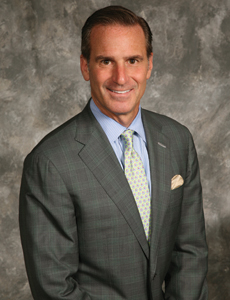
Glenn Spencer, COO and president of U.S. operations, Lockton
“We work with insurance underwriters and executives continuously to try to determine how to address the new exposures using insurance and transfer of risk,” he said, noting that cyber risk has been a problem for “well over a decade. … Is it a coverage or is it a peril? That’s a perfect example of where the industry and we are taking steps to address the needs of clients.”
The soft market is another stumbling block, and it’s a double-edged sword. Lockton strives to provide the most competitive insurance programs to meet client needs, but it still needs to find ways to grow.
“We understand those two things are competing in some ways,” Spencer said, “but we’ve always found a way to do that.”
Lockton noted that in the company’s 50 years, it has grown by double-digits “in each and every one of those years, with the exception of the 2008 recession when we still had positive growth. And we did most of that without the benefit of acquisitions.”
The company has also been able to beat the troubles faced by many family businesses. Lockton noted that only 30 percent of family-owned businesses are able to make it to the second generation and only 10 percent make it to the third generation.
“A big focus of mine over the last five years is to position the company so that we can successfully make that transition,” Lockton said.
“We have been able to adopt a structure that will allow for the family to maintain its stake in the business through future generations while making sure that we have people in business making business decisions.”
While the company has many Locktons playing major roles in the company — including Jack’s son Ron, who was named vice chairman in 2015 — the family agreed that the CEO does not have to bear the family name.
The Locktons are also “willing to pass on the temptation of public offerings or selling to a competitor at the high prices [that prospective purchasers] are willing to pay,” said Lockton.
“Fortunately, the Lockton family is on board with that.”
Being privately owned “is the quintessential differentiator for Lockton,” he said. “It allows us to be long-term focused. It allows us to focus on our constituencies, which we choose to be our associates, our clients and our communities.”
“It allows us to operate at much lower margin than the publicly held competitors do, which means that we can deliver a higher level of service because we are investing more in the client relationship and resources.”
As the next CEO, Spencer does not plan any significant changes.
“If it feels like the company is going in a drastically different direction then I think I’ve done something wrong,” he said.
“I feel like we are in a really, really good place right now. … We need to stay on that path.” &

